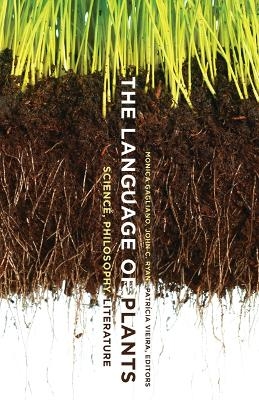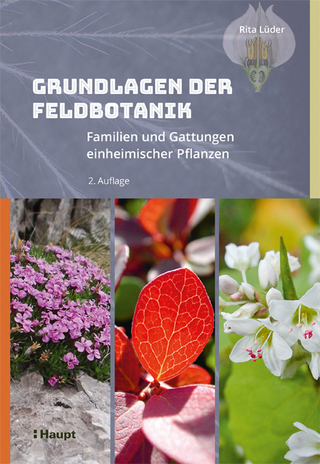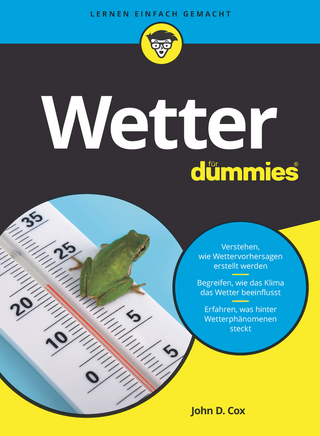
The Language of Plants
University of Minnesota Press (Verlag)
978-1-5179-0184-4 (ISBN)
- Titel ist leider vergriffen;
keine Neuauflage - Artikel merken
The eighteenth-century naturalist Erasmus Darwin (grandfather of Charles) argued that plants are animate, living beings and attributed them sensation, movement, and a certain degree of mental activity, emphasizing the continuity between humankind and plant existence. Two centuries later, the understanding of plants as active and communicative organisms has reemerged in such diverse fields as plant neurobiology, philosophical posthumanism, and ecocriticism. The Language of Plants brings together groundbreaking essays from across the disciplines to foster a dialogue between the biological sciences and the humanities and to reconsider our relation to the vegetal world in new ethical and political terms.
Viewing plants as sophisticated information-processing organisms with complex communication strategies (they can sense and respond to environmental cues and play an active role in their own survival and reproduction through chemical languages) radically transforms our notion of plants as unresponsive beings, ready to be instrumentally appropriated. By providing multifaceted understandings of plants, informed by the latest developments in evolutionary ecology, the philosophy of biology, and ecocritical theory, The Language of Plants promotes the freedom of imagination necessary for a new ecological awareness and more sustainable interactions with diverse life forms.
Contributors: Joni Adamson, Arizona State U; Nancy E. Baker, Sarah Lawrence College; Karen L. F. Houle, U of Guelph; Luce Irigaray, Centre National de la Recherche Scientifique, Paris; Erin James, U of Idaho; Richard Karban, U of California at Davis; André Kessler, Cornell U; Isabel Kranz, U of Vienna; Michael Marder, U of the Basque Country (UPV-EHU); Timothy Morton, Rice U; Christian Nansen, U of California at Davis; Robert A. Raguso, Cornell U; Catriona Sandilands, York U.
Monica Gagliano is research associate professor of evolutionary ecology and research fellow of the Australian Research Council at the University of Western Australia. John C. Ryan is honorary research fellow in English and cultural studies at the University of Western Australia. Patrícia Vieira is associate professor of Spanish and Portuguese, comparative literature, and film and media studies and director of the comparative literature program at Georgetown University.
Contents
Introduction
Monica Gagliano, John C. Ryan, and Patrícia Vieira
Part I. Science
1. The Language of Plant Communication (and How it Compares to Animal Communication)
Richard Karban
2. Speaking in Chemical Tongues: Decoding the Language of Plant Volatiles
Robert A. Raguso and André Kessler
3. Unravelling the “Radiometric Signals” from Green Leaves
Christian Nansen
4. Breaking the Silence: Green Mudras and the Faculty of Language in Plants
Monica Gagliano
Part II. Philosophy
5. To Hear Plants Speak
Michael Marder
6. What the Vegetal World Says to Us
Luce Irigaray
7. The Intelligence of Plants and the Problem of Language: A Wittgensteinian Approach
Nancy E. Baker
8. A Tree By Any Other Name: Language-use and Linguistic Responsibility
Karen L. F. Houle
9. What Vegetables Are Saying about Themselves
Timothy Morton
Part III. Literature
10. The Language of Flowers in Popular Culture and Botany
Isabel Kranz
11. Phytographia: Literature as Plant Writing
Patrícia Vieira
12. Insinuations: Thinking Plant Politics with The Day of the Triffids
Joni Adamson and Catriona Sandilands
13. What the Plant Says: Plant Narrators and the Ecosocial Imaginary
Erin James
14. In the Key of Green?: The Silent Voices of Plants in Poetry
John C. Ryan
Acknowledgments
Contributors
Index
| Erscheinungsdatum | 12.05.2017 |
|---|---|
| Zusatzinfo | 8 |
| Verlagsort | Minnesota |
| Sprache | englisch |
| Maße | 140 x 216 mm |
| Themenwelt | Sachbuch/Ratgeber ► Natur / Technik ► Natur / Ökologie |
| Geisteswissenschaften ► Philosophie | |
| Naturwissenschaften ► Biologie ► Botanik | |
| ISBN-10 | 1-5179-0184-7 / 1517901847 |
| ISBN-13 | 978-1-5179-0184-4 / 9781517901844 |
| Zustand | Neuware |
| Haben Sie eine Frage zum Produkt? |
aus dem Bereich


